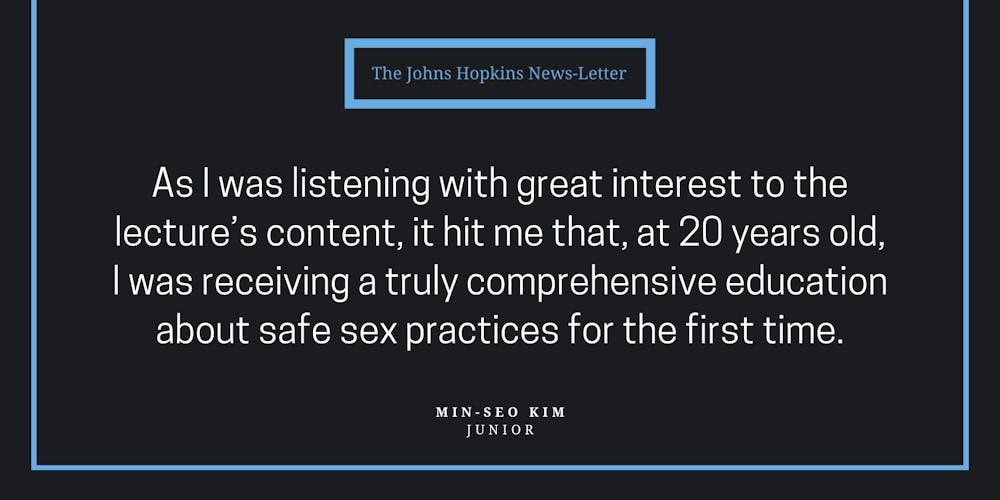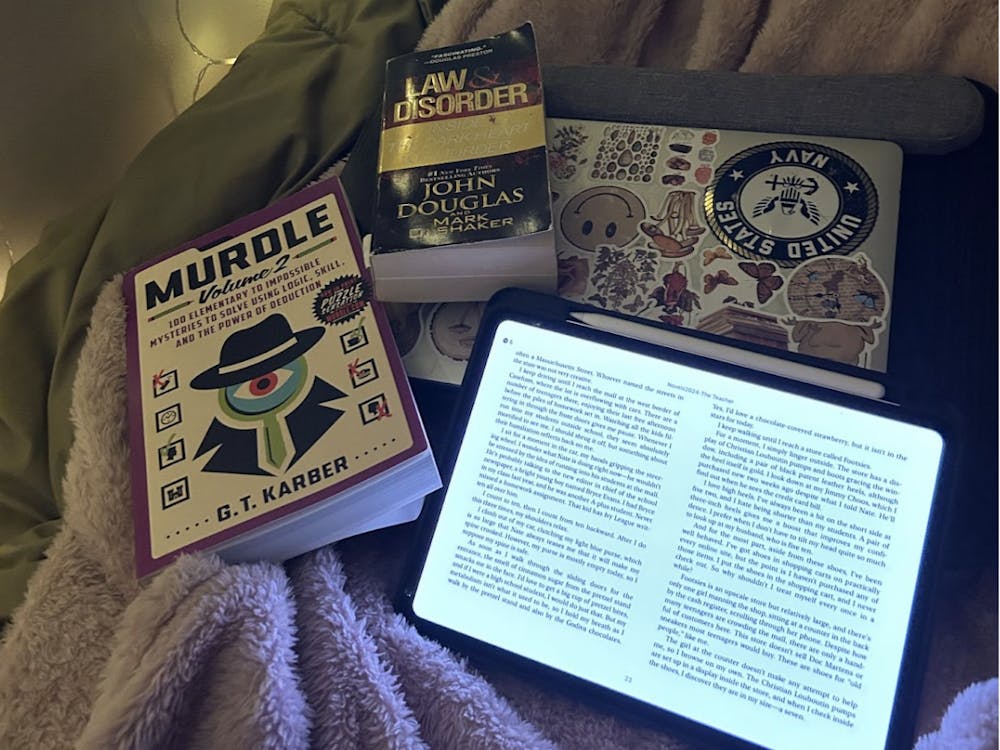High school should be preparing students for the next exciting and challenging phase of their lives, which is attending university. At the very least, students should be taught important information before they are thrust into a new and hectic environment, where they don’t often have time to learn basic life skills other than via trial and error.
It wasn’t until one of my public health classes at Hopkins that I realized just how much our high schools fail us in that regard.
One of my professors brought in a guest lecturer from the Student Health and Wellness Center to discuss contraceptives. The lecturer explained how the various birth control methods worked as well as their effectiveness and side effects.
As I was listening with great interest to the lecture’s content, it hit me that, at 20 years old, I was receiving a truly comprehensive education about safe sex practices for the first time. I did have sex education in high school through an online course. Looking back, though, I realized how ineffective and lacking it was.
The online course emphasized abstinence as the best course of action to prevent unwanted pregnancies and sexually transmitted infections. When the course did address birth control methods, it often described them in less-than-flattering terms, emphasizing their negative side effects and downplaying their effectiveness.
Even if I had taken a physical, in-person class at my high school in Ohio instead, my luck wouldn’t have been any better. Ohio laws mandate that sexual education should emphasize abstinence, and they do not require comprehensive classes on contraceptives.
When I look across the country, the picture becomes even grimmer. In 30 states, the sexual education programs emphasize abstinence, while only 14 states mandate expansive instruction on contraceptives. This dearth of birth control education does not even begin to address the many other gaps in our country’s sex education, like the frequent absence of material on consent, sexual orientation and gender identity.
The situation becomes almost laughable when I consider that the only time I learned about the effectiveness of the birth control pill was in my AP European History when we discussed the importance of the pill to the rise of modern feminism. Additionally, I only learned about condoms from my parents, yet that conversation does not even occur in all households; in a 2014 survey, only 60% of parents reported that they talked to their kids about birth control.
Considering that the average American loses their virginity around 17 years old, it would seem imperative to at least teach teenagers how to have safe sex. This minimizes associated consequences, such as teen pregnancy and the spread of sexually transmitted infections. Yet, due to the lack of thorough sex education across the nation, our society as a whole suffers the consequences of this policy failure.
Case in point, the U.S. has the unfortunate distinction of having the highest teen pregnancy rate of any developed country, though it has significantly declined over the past few years. Teen pregnancy has been linked to significantly worse education and economic outcomes, and these burdens tend to fall disproportionately on marginalized communities.
Additionally, The Centers for Disease Control and Prevention reported that there were a staggering 26 million new cases of sexually transmitted infections in the U.S. in 2018, with around half of these cases being among Americans aged 15–24 years. Once again, the consequences of these infections impacted minority communities at higher rates.
As a public health student, I find myself quite lucky that one of my required courses extensively discussed the different kinds of contraceptives. Nonetheless, I am still immensely frustrated. Not all Hopkins students will take this class, and many of us may have limited knowledge of safe sex practices.
Early on in my public health coursework, I learned that the main goals of the field are to improve the health of our populations and reduce health disparities. The state of sex education in the U.S. poses a great obstacle to these objectives. Schools must embrace a more fact-based, comprehensive approach that includes education about contraceptives.
Min-Seo Kim is a junior from Cincinnati, Ohio majoring in Public Health Studies.





